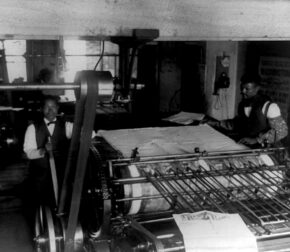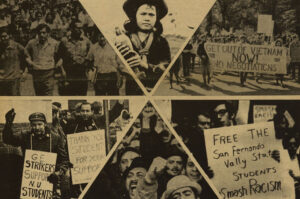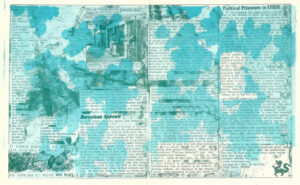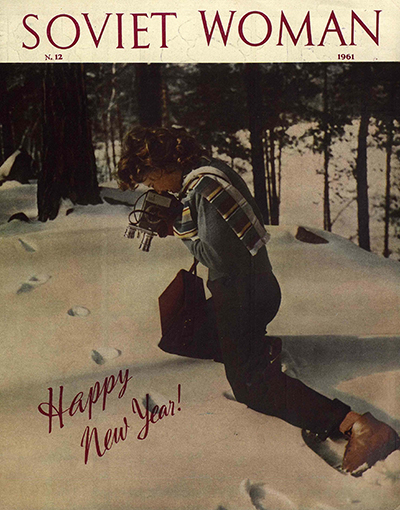Author: dorner
Bancroft Roundtable: California and the Making of ‘Latin America’: A View From the 19th-Century Hemispheric Archive
California and the Making of ‘Latin America’: A View From the 19th-Century Hemispheric Archive
February 16, 2023 | Noon | Register via Zoom
Presented by Alexander Chaparro-Silva, Ph.D. candidate in history, The University of Texas at Austin, and 2022 recipient of The Bancroft Library Summer Study Award
During the 19th century, many intellectuals and diplomats from Latin America came to California, published continental newspapers and books, sponsored intellectual circles and political clubs, and established transnational correspondence networks to engage with the political problems common to the American hemisphere. These transnational crossings contributed to debates over slavery, citizenship, and immigration in Latin America and reinforced an Anglo/Latin distinction within the hemisphere as the boundary between two competing civilizations. Drawing upon 19th-century printed materials, travelogues, diaries, official documents, and diplomatic correspondence — many from The Bancroft Library — Alexander Chaparro-Silva will explore the role of these hemispheric mobilities in the making of the geopolitical category of “Latin America,” and reflect on the possibilities and challenges of assembling a hemispheric archive dispersed across a vast geography.
We look forward to seeing you at these talks.
Primary Sources: African American Newspapers in the South, 1870-1926
 African American Newspapers in the South, 1870-1926 is a new addition to Accessible Archives. It documents the African American press in the South from Reconstruction through the Jim Crow period. Written by African Americans for African Americans, the first-hand reporting, editorials, and features kept readers abreast of current domestic and international events, often focusing on racial issues. The editors didn’t shy away from exposing racial discrimination and violence, including the emotionally laden topic of lynching. Yet, the newspapers also covered lighter fare, reporting on civic and religious events, politics, foreign affairs, local gossip, and more.
African American Newspapers in the South, 1870-1926 is a new addition to Accessible Archives. It documents the African American press in the South from Reconstruction through the Jim Crow period. Written by African Americans for African Americans, the first-hand reporting, editorials, and features kept readers abreast of current domestic and international events, often focusing on racial issues. The editors didn’t shy away from exposing racial discrimination and violence, including the emotionally laden topic of lynching. Yet, the newspapers also covered lighter fare, reporting on civic and religious events, politics, foreign affairs, local gossip, and more.
It includes all complete runs of representative newspapers from the District of Columbia, Georgia, Louisiana, North Carolina, Oklahoma, Tennessee, and West Virginia:
Athens Republique, 1921 – 1926
The Banner-Enterprise, 1883 – 1884
The Bee, 1882 – 1884
The Black Dispatch, 1917 – 1922
The Educator, 1874 – 1875
The Langston City Herald, 1892 – 1900
The Louisianian, 1870 – 1871
The Nashville Globe, 1907 – 1918
The National Forum, 1910
Pioneer Press, 1911 – 1917
The Republican, 1873 – 1875
Semi-Weekly Louisianian, 1871 – 1872
The Tulsa Star, 1913 –1921
Western World, 1903 – 1904
Primary Sources: Student Activism
 Reveal Digital’s Student Activism collection aims to provide access to unique, yet essential, primary sources documenting the deep and broad history of student organizing in the United States. It is intended to serve as a scholarly bridge from the extensive history of student protest in the United States to the study of today’s vibrant, continually unfolding actions.
Reveal Digital’s Student Activism collection aims to provide access to unique, yet essential, primary sources documenting the deep and broad history of student organizing in the United States. It is intended to serve as a scholarly bridge from the extensive history of student protest in the United States to the study of today’s vibrant, continually unfolding actions.
The completed collection will contain approximately 75,000 pages drawn from special collection libraries and archives around the country. Materials intended for inclusion are wide-ranging in nature: Circulars, leaflets, fliers, pamphlets, newsletters, campaign materials, protest literature, clippings, periodicals, bulletins, letters, press releases, ephemera; and meeting, demonstration, conference, and event documentation. Currently approximately 58,000 pages are available.
Primary Sources: American Prison Newspapers, 1800-2020: Voices from the Inside
 On March 24, 1800, Forlorn Hope became the first newspaper published within a prison by an incarcerated person. In the intervening 200 years, over 450 prison newspapers have been published from U.S. prisons. Some, like the Angolite and the San Quentin News, are still being published today. American Prison Newspapers will bring together hundreds of these periodicals from across the country into one collection that will represent penal institutions of all kinds, with special attention paid to women’s-only institutions.
On March 24, 1800, Forlorn Hope became the first newspaper published within a prison by an incarcerated person. In the intervening 200 years, over 450 prison newspapers have been published from U.S. prisons. Some, like the Angolite and the San Quentin News, are still being published today. American Prison Newspapers will bring together hundreds of these periodicals from across the country into one collection that will represent penal institutions of all kinds, with special attention paid to women’s-only institutions.
Development of the American Prison Newspapers collection began in July 2020 and will continue through 2022, with new content added regularly. The source material for the collection is being provided by numerous libraries and individuals from across the country. Currently there are nearly 100,000 pages available (of a planned 250,000 pages), representing at least one prison in 30 states.
EVENT Bancroft Roundtable: Land, Wealth and Power: Digitizing the California Land Case Files, 1852-1892
November 17, 2022 | Noon | Register via Zoom
Presented by Adrienne Serra, Digital Project Archivist, The Bancroft Library, University of California, Berkeley, with an introduction by Principal Investigator Mary Elings, Interim Deputy Director, Associate Director, and Head of Technical Services, The Bancroft Library
In 2021, The Bancroft Library launched a large-scale digitization project to preserve and provide online access to more than 127,000 pages of California Land Case Files dating from ca. 1852 to 1892. These records tell an important story about the use and distribution of land, as well as social and legal justice in California following statehood in 1850, when all Spanish and Mexican land grants holders were required to prove their land claims in court. A lengthy process of litigation followed, which resulted in many early Californians losing their land. The Land Case Files are heavily used by current land owners, genealogists, historians, and environmentalists to understand the land, its uses, and ownership over time. The digitization project, Land, Wealth and Power: Private Land Claims in California, ca. 1852 to 1892 (Mary Elings, Principal Investigator), was awarded a 2019 Digitizing Hidden Special Collections and Archives: Amplifying Unheard Voices grant. Digital Project Archivist Adrienne Serra will discuss the collection and the project, including the challenges of preparing and imaging fragile materials under pandemic restrictions, and plans for future community engagement projects.
See you there! As always, this talk will also be recorded and added to our Youtube channel.
Best,
Christine & José Adrián
Resource: Bancroft Roundtables online
The Bancroft Library has updated its website with links to online presentations of most of the past Bancroft Roundtable events. These include:
September 16th
Expanding Access to WWII Japanese American Incarceree Data Using Machine Learning
Presented by Marissa Friedman, Digital Project Archivist, The Bancroft Library
Watch online on YouTube
October 21st
A Good Drink: In Pursuit of Sustainable Spirits
Presented by Shanna Farrell, Interviewer, Oral History Center, The Bancroft Library
Watch online on YouTube
November 18th
The Photographs of the Northwest Boundary Survey, 1857 to 1862
Presented by James Eason, Principal Archivist, Pictorial Collection, The Bancroft Library
Watch online on YouTube
Event: Documenting the Japanese American Incarceration through Narratives and Data. June 2
Documenting the Japanese American Incarceration Through Narratives and Data
June 2 | 2-4 p.m. | Doe Library, Morrison Library
In person and online: ucberk.li/bancroft-symposium
Hosted by The Bancroft Library, Berkeley Library
The event is posted in the UC Berkeley Events Calendar here.
Session 1: Japanese American Intergenerational Narratives Oral History Project: Is Healing Possible?
2:00 pm – 3:00 pm
This session explores the Oral History Center’s ongoing Japanese American Intergenerational Narratives Oral History Project that documents and disseminates the ways in which intergenerational trauma and healing occurred after the U.S. government’s incarceration of Japanese Americans during World War II. This project examines and compares how private memory, creative expression, place, and public interpretation intersect at the Manzanar and Topaz prison camps in California and Utah. This panel will include discussion with interviewers, and it will feature conversations with a clinical psychologist and specialist in intergenerational trauma who advises on the project and leads healing circles for narrators, as well as a narrator who was interviewed for the project.
Roger Eardley-Pryor, Interviewer, the Oral History Center
Shanna Farrell, Interviewer, the Oral History Center
Dr. Lisa Nakamura, clinical psychologist and Topaz descendant
Ruth Sasaki, Topaz Stories Editor
Amanda Tewes, Interviewer, the Oral History Center
Session 2: Giving Data Back to the Community through Computational Scholarship: Two Case Studies Focused on Japanese American Incarceree Records from World War II
3:00 pm – 4:00 pm
This session brings together two in-process projects that are working to encourage computational and ethical access to collections and data. Presenters from The Bancroft Library and Densho will discuss their projects related to records surrounding the forced removal and incarceration of 120,000 persons of Japanese ancestry during World War II. The intersectional and positional work of these projects highlights the importance of building new partnerships outside of the archives to create new content and implement community co-curation models to support on-going inquiry, knowledge-building, and exploration around this topic, with implications for vulnerable communities today.
Mary Elings, Interim Deputy Director, The Bancroft Library
Marissa Friedman, Digital Project Archivist, The Bancroft Library
Brian Niiya, Content Director, Densho
Geoff Froh, Deputy Director, Densho
Vijay Singh, CEO, Doxie.AI
These events will be recorded.
Funding for this event was made possible, in part, by grants from the U.S. Department of the Interior, National Park Service, Japanese American Confinement Sites Grant Program and The Henri and Tomoye Takahashi Charitable Foundation.
Covid Protocols
We ask that participants comply with all health and safety guidelines and protocols recommended by UC Berkeley. This includes wearing a mask while indoors.
All Audiences
bancroft@library.berkeley.edu, 510-642-3781
If you require an accommodation to fully participate in this event, please contact Amber Lawrence at libraryevents@berkeley.edu or 510-459-9108 at least 7-10 days in advance of the event.
Primary Sources: Accessible Archives

The Library has an ongoing subscription to Accessible Archives, which provides access to valuable newspaper content, county histories, early periodicals, books, and pamphlets. The collections can be browsed or searched (though the search interface is fairly clunky).
The most recent additions to Accessible Archives include:
- African American Newspapers, Part XIV: The Canadian Observer, 1914-1919
- Invention and Technology in America: American Inventor, 1878-1887
- America and World War I: American Military Camp Newspapers, Parts I and II
Primary Sources: Soviet Woman Digital Archive
 The Library has acquired the Soviet Woman Digital Archive, an online source for the full run of Soviet Woman magazine.
The Library has acquired the Soviet Woman Digital Archive, an online source for the full run of Soviet Woman magazine.
Published initially under the aegis of the Soviet Women’s Anti-Fascist Committee and the Central Council of Trade Unions of the USSR, in the aftermath of WWII in 1945, the Soviet Woman magazine began as a bi-monthly illustrated magazine tasked with countering anti-Soviet propaganda. The magazine introduced Western audiences to the lifestyle of Soviet women, their role in the post-WWII rebuilding of the Soviet economy, and praised their achievements in the arts and the sciences.
Additional Information:
The magazine covered issues dealing with economics, politics, life abroad, life in Soviet republics, women’s fashion, as well as broader issues in culture and the arts. One of its most popular features was the translations of Soviet literary works, making available in English, (and other languages) works of Russian and Soviet writers that were previously unavailable. An important communist propaganda outlet, the magazine continued its run until the collapse of the USSR in 1991.
Primary Sources: Books of Modern China & Picture Gallery of Chinese Modern Literature

The Library has recently acquired Books of Modern China (1840-1949), 中国近代图书全文数据库, a collection of more than 120,000 Chinese books published in Mainland China. Many of them are unique titles and are only available through this digital collection from the Shanghai Library.
The Picture Gallery of Chinese Modern Literature (1833-1949), 图述百年—中国近代文献图库 contains more than one million images that have been collected from books, periodicals, newspapers, and old photos held by the Shanghai Library.
These resources have been added to the History: Asia guide.